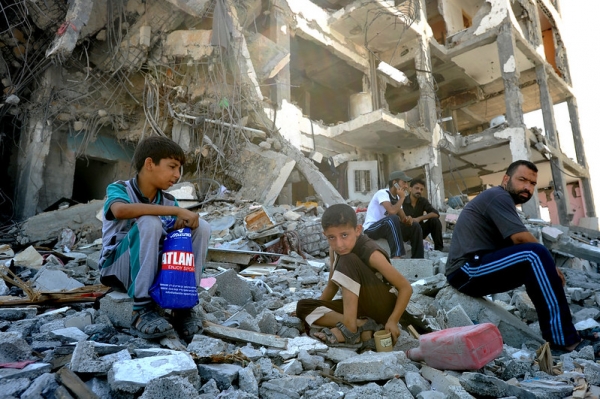In October 2023, Hamas, the militant group that controls the Gaza Strip, attacked Israel. In response, Israel began to strike back. However, the conflict is rooted in a long history of territorial and political dispute. Since then, civilians from both parties have suffered from the attacks. As a result, the sanitary conditions have worsened as medicine and medical aid have had difficulties in reaching the territories.
Christian Lindmeier, spokesman for the World Health Organization (WHO), confirms that poliovirus type 2 (VDPV2) has been detected in 6 locations, including Khan Younis and Deir al Balah. According to the WHO, this particular virus was eradicated from Gaza more than 25 years ago, and before the war, 95% of the population was vaccinated against it. However, the ongoing war has affected the organization of the civilian population and its health system. Mass displacement, lack of security and shortages of medical supplies are just some of the reasons why the virus has had the opportunity to spread again, as people often don't know they are infected and can involuntarily infect others.
On the positive side, sources in Geneva confirm that the virus has been isolated from the environment. In the occupied Palestinian territory, the WHO is working with the local health authority, the UN Children's Fund, and the UN Relief and Works Agency for Palestine Refugees in the Near East (UNRWA) to assess the spread of the virus and come up with a plan to reduce its impact, such as increasing vaccinations.
The situation in Gaza is very critical for civilians. People are constantly moving in search of shelter. The UN human rights official affirmed that Israel's constant attacks destroy any possibility of maintaining order and security in Gaza. In fact, only 16 of Gaza's 36 hospitals are partially functional today, and 45 of the 105 primary health care facilities are operational. Oliver Rosenbauer explained that this polio virus can emerge in areas with poor vaccination coverage. This allows the weakened form of the vaccine virus strain to genetically mutate, creating a stronger version that can still cause paralysis.
In addition, the International Committee of the Red Cross (ICRC) confirms that its hospital in Rafah is almost at full capacity. There are only 60 beds and the mass attacks, such as the one in Al-Mawasi on Saturday, July 13, causes the available spaces to be soon exhausted. William Schomburg, head of the ICRC's sub-delegation in Gaza, affirmed that the situation is very critical. If it continues, doctors may be forced to make difficult choices as the limited availability of supplies and the medical response doesn’t allow to save everyone. In fact, many patients have shrapnel injuries that require extensive medical intervention.
UNRWA Commissioner-General Philippe Lazzarini reiterated the agency's commitment to continue fighting to save lives in the Gaza Strip. However, only a ceasefire can stop the spread of the virus.
To read more, visit:
- Israeli-Palestinian Conflict | Global Conflict Tracker (cfr.org)
- World Health Organization (WHO)
- Polio stalks Gazans as ‘anarchy’ spreads, humanitarians warn | UN News
- UNSDG | United Nations Children’s Fund
- UNSDG | United Nations Relief and Works Agency for Palestine Refugees in the Near East
- Who we are | ICRC
- Gaza: Repeated mass casualty events put hospitals under severe strain | International Committee of the Red Cross (icrc.org)







